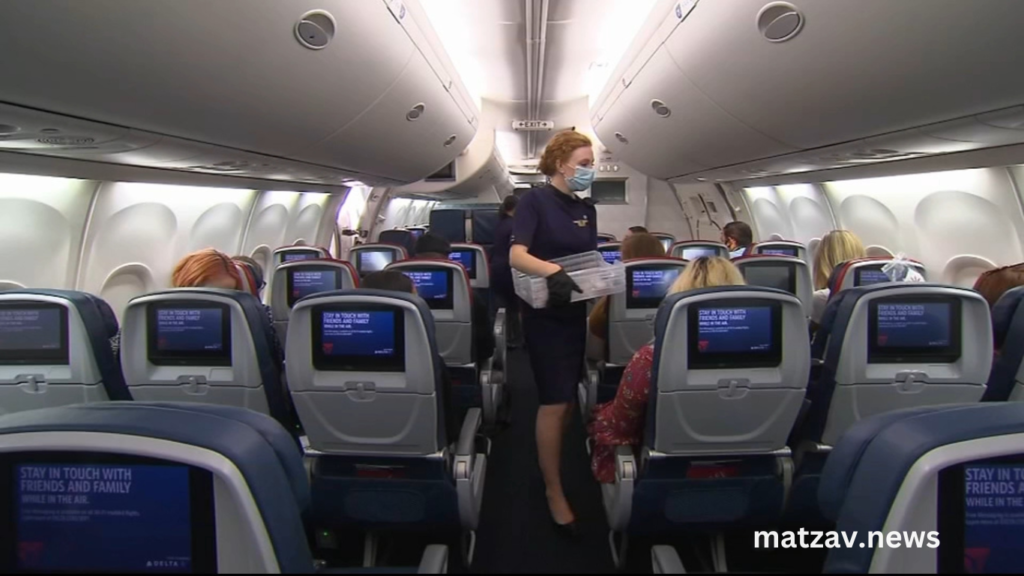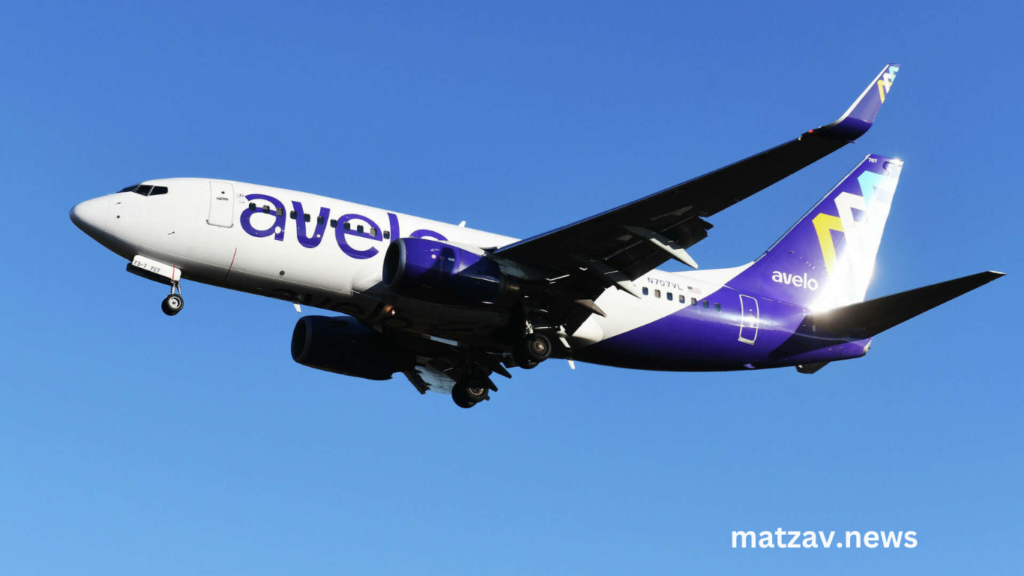Avelo Airlines, the budget carrier known for offering affordable flights across the United States, has recently found itself at the center of a heated controversy. Reports have emerged confirming that the airline has secured a government contract to operate deportation flights for U.S. Immigration and Customs Enforcement (ICE). The revelation has sparked widespread debate among immigration advocates, travelers, and industry watchers alike.
Everything you need to know about Avelo’s contract with ICE—from how these deportation flights work to the ethical and political implications, the public’s response, and what this means for the airline moving forward.
Avelo Airlines: A Brief Background
Founded in 2021, Avelo Airlines positioned itself as a low-cost carrier targeting underserved regional airports. Based in Houston, Texas, the airline quickly gained attention for its affordable airfare and no-frills approach to flying. Avelo has grown steadily since its inception, offering routes to over 20 destinations across the U.S., particularly in the West and Southeast regions.
The airline’s slogan, “A Different, Better, and More Affordable Travel Experience” resonated with budget-conscious travelers looking for an alternative to legacy carriers. But now, with its newly revealed government contract, Avelo is attracting a different kind of attention.
What’s Been Confirmed?
According to public records and investigative reporting from watchdog groups and news outlets, Avelo Airlines has entered into a contractual agreement with ICE to conduct deportation flights. These are flights organized to remove undocumented immigrants or individuals deemed to violate U.S. immigration laws.
The exact terms of the contract, including the number of flights, destinations, or the financial value of the deal, have not been fully disclosed to the public. However, sources familiar with ICE’s operations confirm that Avelo is one of several private carriers that have participated in such deportation programs.

This revelation places Avelo alongside other airlines like Swift Air and World Atlantic, which have historically worked with ICE on immigration enforcement-related transport.
How Deportation Flights Work
To better understand the controversy, it’s essential to grasp how deportation flights operate.
Organized by ICE’s Air Operations Division
ICE’s Air Operations handles the logistics of deporting immigrants who are subject to removal orders. These flights can involve individuals who:
Entered the U.S. without documentation
- Overstayed their visas
- Were denied asylum
- Committed criminal offenses
Charter Flights, Not Commercial Routes
Deportation flights typically do not operate on regular commercial routes. Instead, they are privately chartered flights, often departing from lesser-known airstrips or military bases.
Destinations Outside the U.S.
Depending on the individual’s country of origin, these flights often go to Central America, South America, the Caribbean, and parts of Asia and Africa.
Involves Security Protocols
The flights are heavily monitored. Deportees are usually handcuffed or restrained, and law enforcement officials accompany them throughout the process.

Why Is Avelo’s Involvement Controversial?
The backlash against Avelo stems from several ethical and political concerns.
Brand Mismatch
Avelo markets itself as a friendly, customer-focused airline. However, its involvement with ICE—a federal agency often criticized for harsh immigration enforcement—has raised eyebrows. Critics argue that there is a dissonance between the airline’s brand image and its actions.
Involvement in Family Separations
ICE deportation flights have previously been linked to the separation of families, particularly during the Trump administration’s “Zero Tolerance” policy. Although the policy was officially rescinded, many remain wary of ICE’s approach. Some fear Avelo’s flights could be complicit in deporting vulnerable individuals, including asylum seekers and minors.
Activist Pushback
Immigrant rights organizations have already started mobilizing against Avelo. Online petitions are circulating, and protests have been staged at airports. A growing boycott movement encourages travelers to avoid flying with Avelo.
Avalon’s Response
As of publication, Avelo Airlines has not issued a comprehensive public statement directly addressing its role in operating deportation flights. When journalists reached for a comment, a spokesperson provided a brief remark stating that the airline “complies with all applicable federal regulations and contractual obligations.”
Critics argue this lack of transparency is unacceptable. “If Avelo is profiting from the deportation of immigrants, they owe the public a full explanation,” said Ana Rodríguez, director of the nonprofit Migrant Voices United.
The Public’s Reaction
The public reaction has been divided some are outraged, while others defend Avelo’s decision as a legal business move.
On Social Media
- Hashtags like Boycott Avelo and Deportation Flights have trended on Twitter and Instagram.
- Travel influencers and immigration advocates have posted messages urging followers to “fly with airlines that don’t assist ICE.”
Among Customers
Some frequent fliers have canceled their bookings or stated they won’t fly to Avelo again. Others, however, view the situation more pragmatically.
“I hate to see it, but business is business,” said Tim Caldwell, a frequent flyer based in Florida. “If it’s a legal government contract, I’m not sure we can blame the airline entirely.”
Legal and Financial Implications

Federal Contracting Process
It’s worth noting that working with ICE typically involves a competitive bidding process. Airlines that receive these contracts must comply with strict federal regulations and meet operational standards.
Revenue Generation
Government contracts can be lucrative, especially for smaller carriers like Avelo. These deals may provide a reliable revenue stream, especially during off-peak travel seasons.
Reputational Risk
However, the financial benefits may be overshadowed by reputational damage. With today’s consumers becoming more socially conscious, companies that ignore ethical concerns often pay a steep price in customer loyalty and brand perception.
The Bigger Picture: Airlines and ICE
Avelo isn’t the first airline to get involved in ICE operations. Over the years, other carriers have operated deportation flights, including:
- Swift Air
- World Atlantic Airlines
- Omni Air International
But the tide may be shifting. In recent years, major airlines like American, Delta, and United have publicly stated they would not participate in deportation-related activities, especially involving children separated from families.
This shift reflects growing corporate accountability in response to public pressure and places added scrutiny on smaller carriers that continue to fill that role.
Frequently Asked Questions
What is Avelo Airlines’ role in deportation flights?
Avelo Airlines has been contracted by ICE to operate charter flights used for deporting undocumented immigrants from the U.S.
Is Avelo the only airline working with ICE?
No. Other airlines like Swift Air and World Atlantic Airlines have also worked with ICE on deportation flights.
Are these deportation flights part of Avelo’s regular service?
No. These are special, non-commercial charter flights conducted separately from Avelo’s public passenger services.
Has Avelo responded to public criticism about the ICE contract?
Avelo has not issued a detailed public response, only stating compliance with federal laws and contractual obligations.
Are passengers on commercial Avelo flights affected by these operations?
No. Deportation flights are handled separately and do not impact Avelo’s commercial travel routes or passengers.
Can customers boycott Avelo due to this contract?
Yes. Some advocacy groups have called for a boycott and encourage customers to choose airlines not involved in deportations.
Are deportation flights legal in the U.S.?
Yes. ICE is legally authorized to deport individuals who violate immigration laws, using government-contracted flights.
Is Avelo violating human rights by doing this?
That’s a matter of public debate. Critics argue it is unethical, while others say it’s a legal government service.
How do deportation flights work logistically?
ICE charters flights, coordinates with private airlines, and escorts deportees under strict security protocols to their home countries.
Can Avelo cancel its ICE contract?
Yes. Avelo can choose not to renew or terminate the contract, though that may have financial implications.
Conclusion
Avelo Airlines’ contract with ICE to operate deportation flights has triggered public outcry and ethical debate. While legal, the move raises serious questions about corporate responsibility and immigration policy. As the airline navigates backlash, transparency and accountability will be crucial. Whether Avelo continues this partnership or pivots in response to public pressure remains to be seen—but travelers are increasingly demanding that companies align with human rights values.
